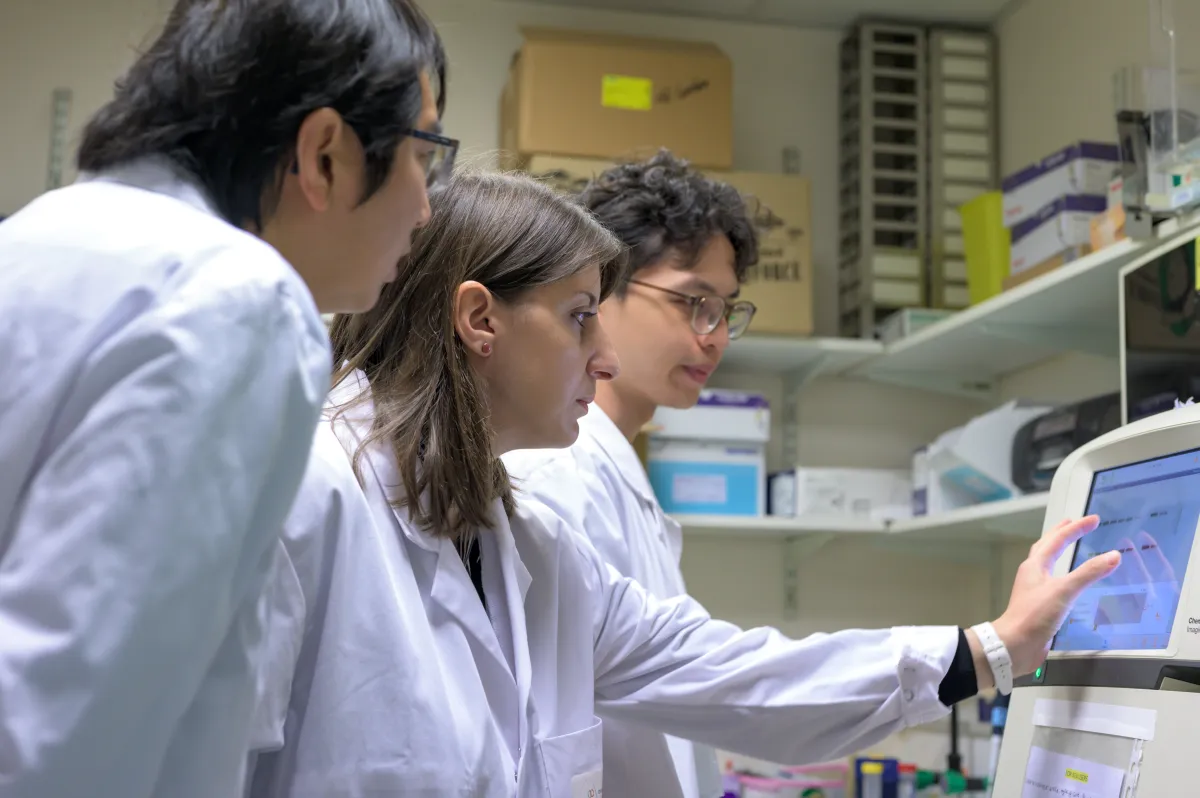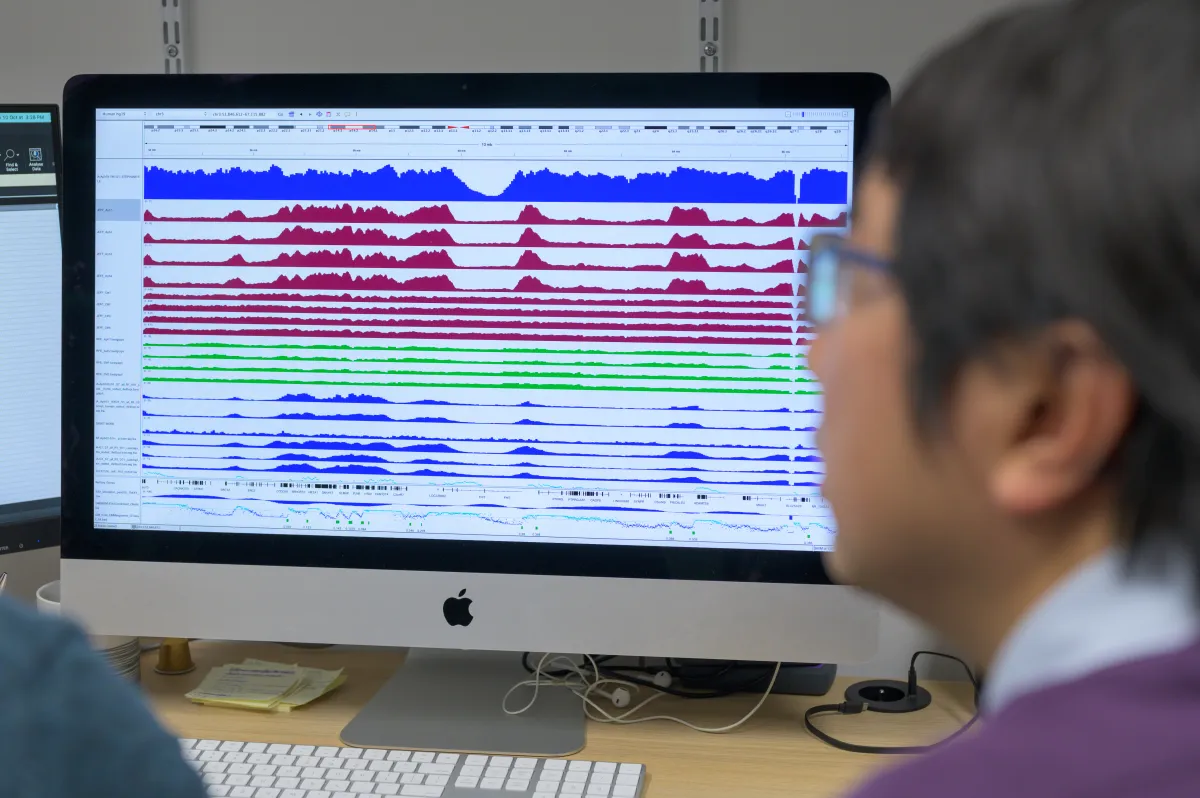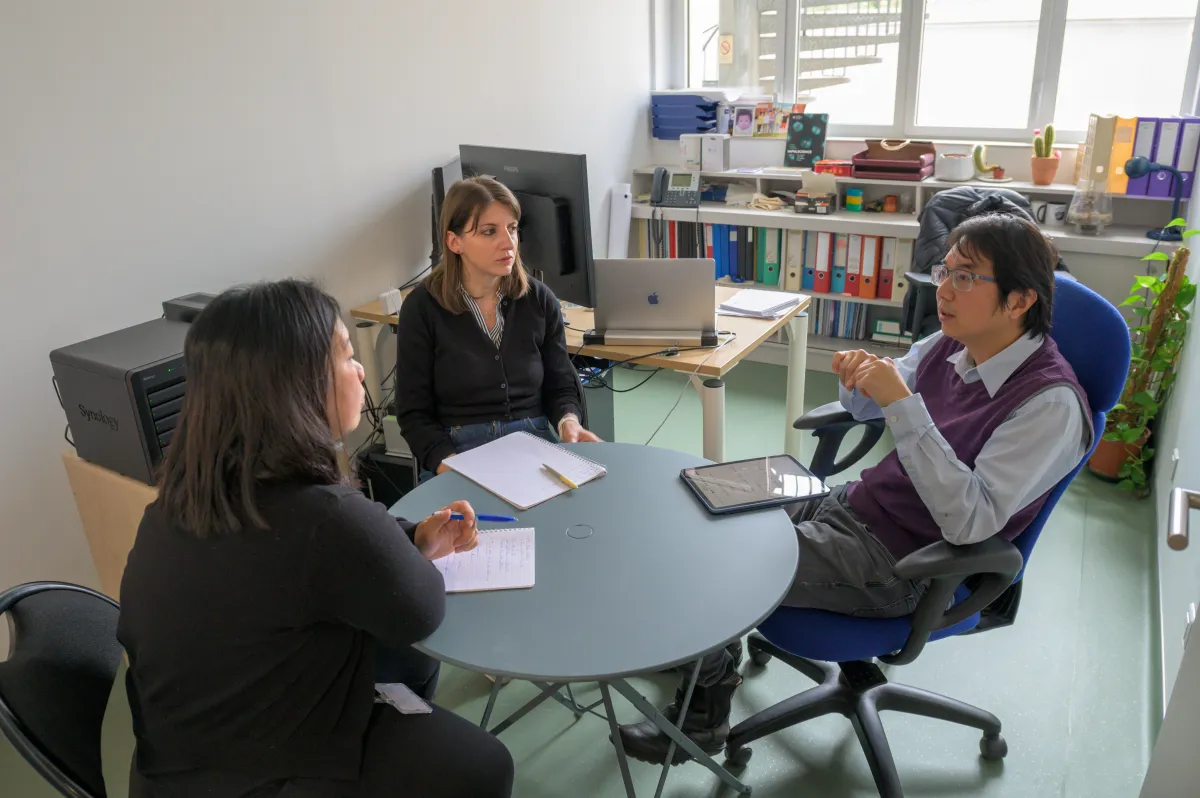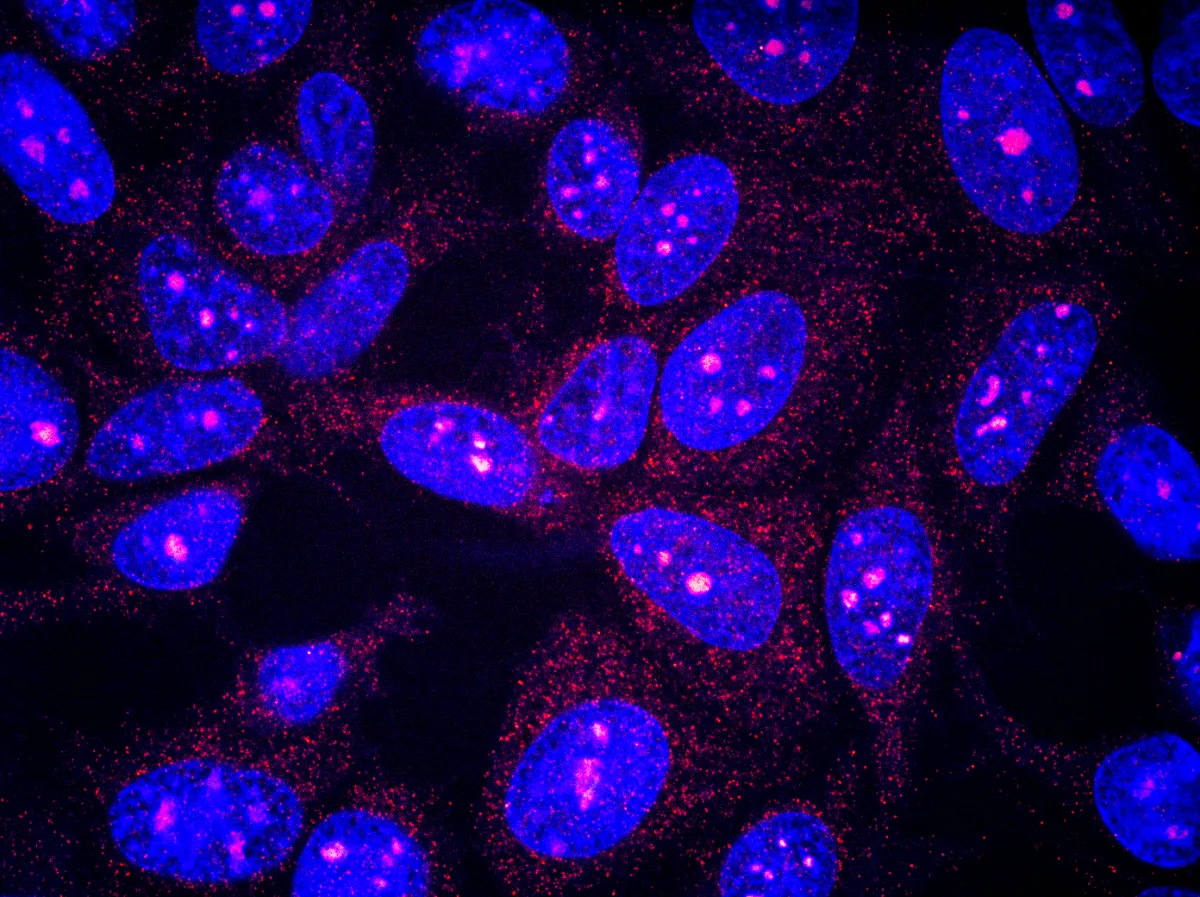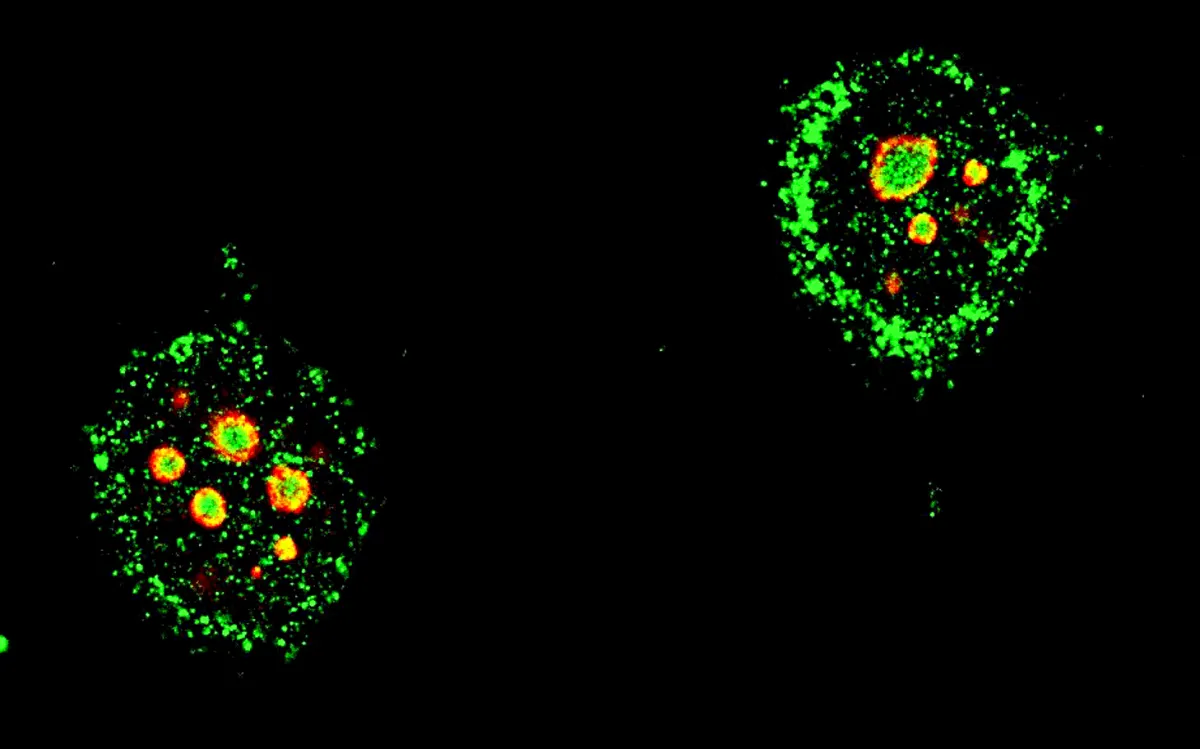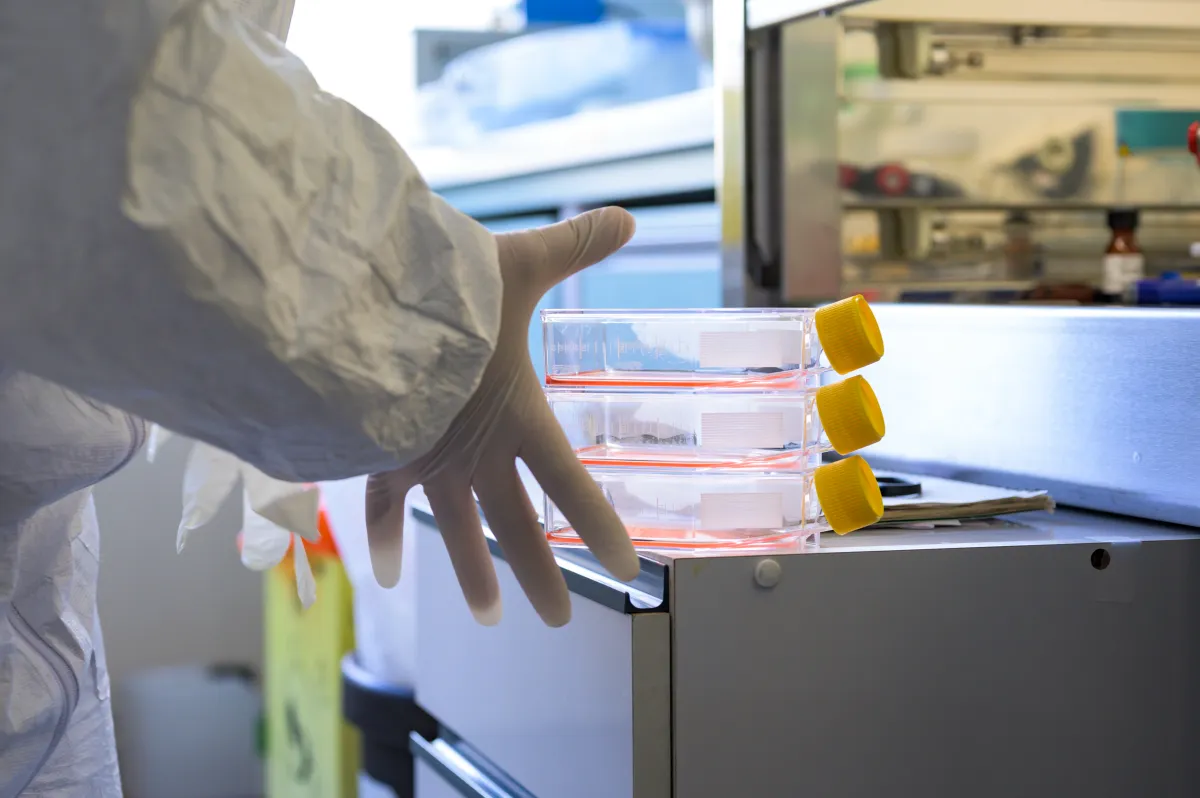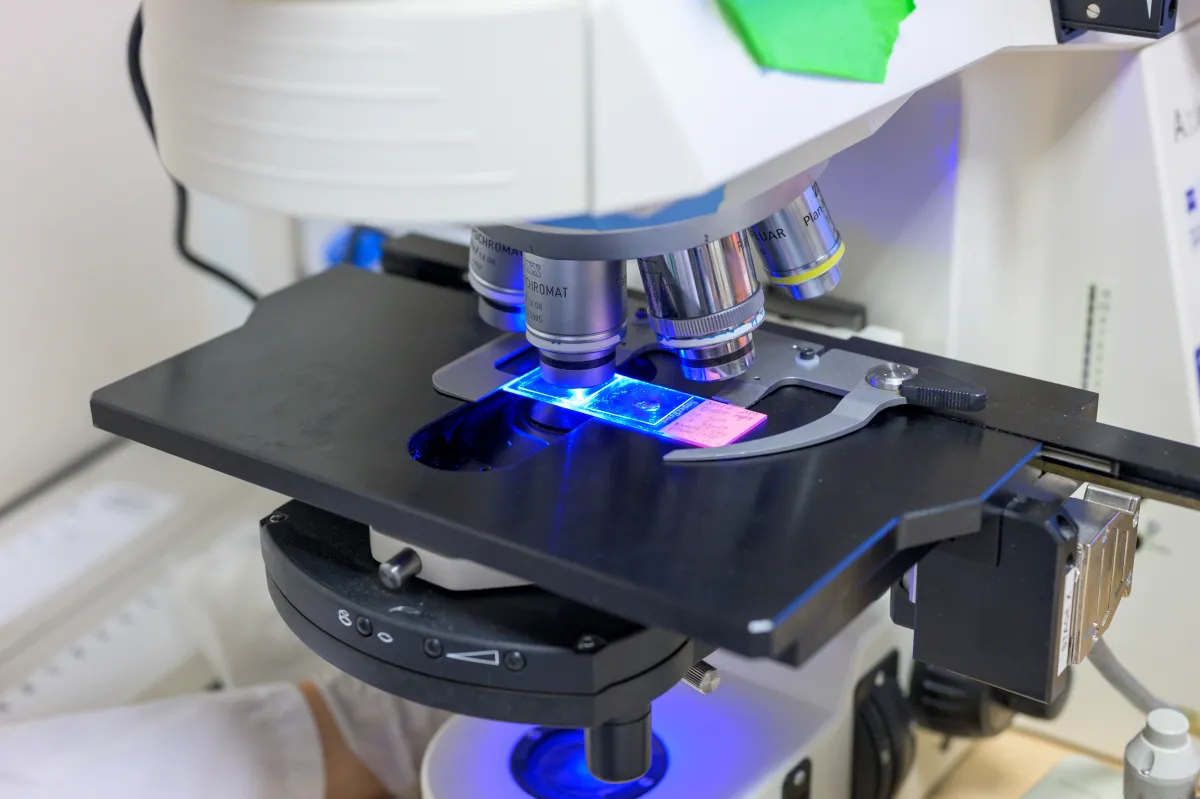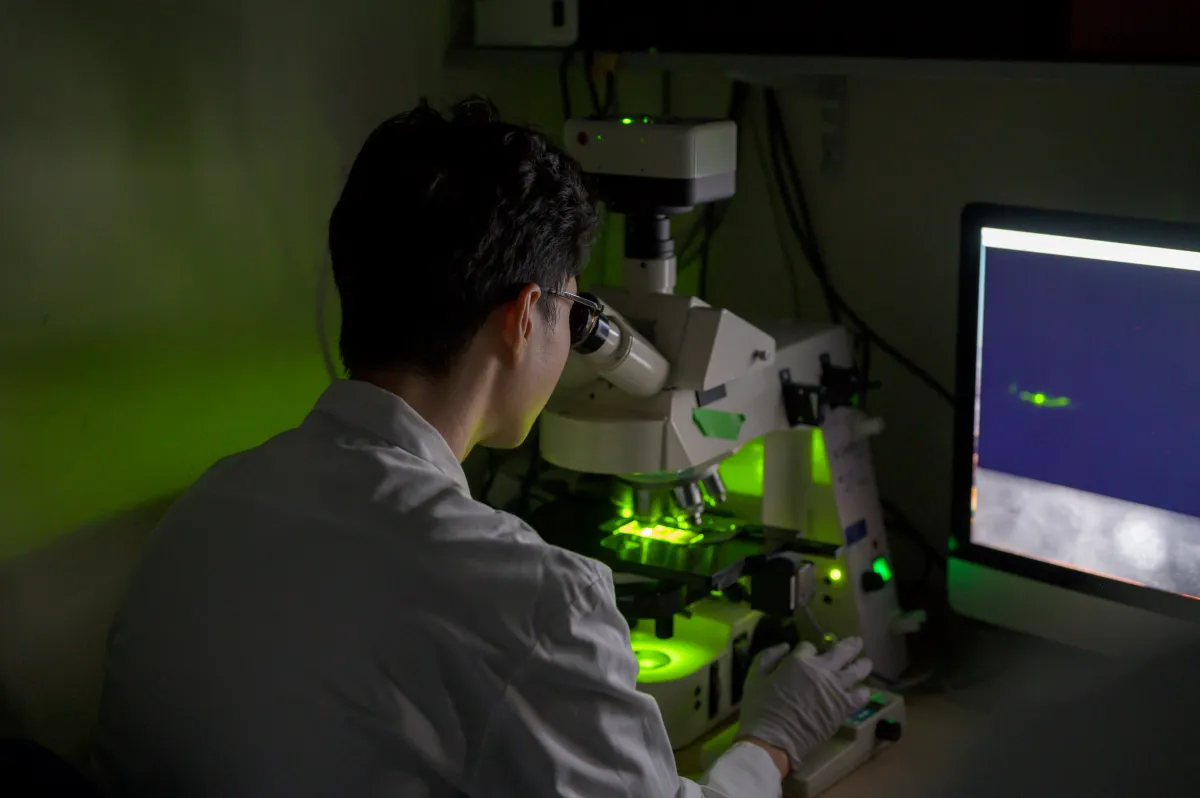Chunlong Chen Behind the scenes of DNA replication
Chunlong Chen, CNRS research director, Institut Curie, Paris, France
- 2022 • Impulscience
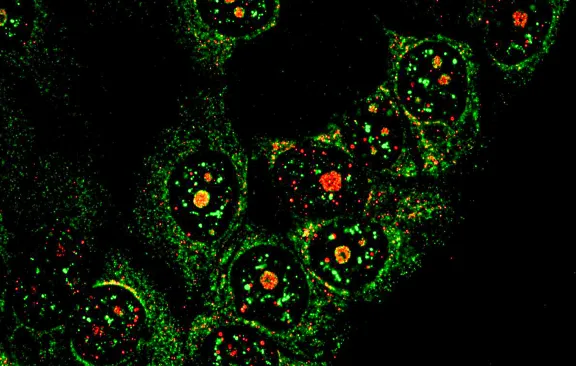
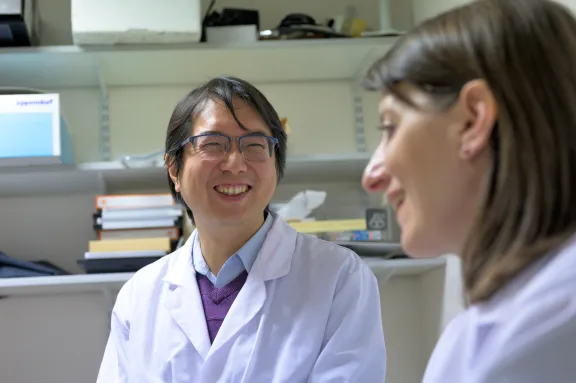

Chunlong Chen and his team are trying to understand how our DNA duplicates itself with each cell division. Their new, cutting-edge approaches will shed light on why starting the process at the right time and place is fundamentally important to the proper functioning of cells.
The hard task of duplicating the genome
When our cells divide, they must duplicate their DNA to ensure that both resulting cells have a copy of the same DNA sequence. To do that, duplication, called replication, begins at very specific sites in the DNA, in a remarkably organized and dynamic fashion. It depends on the type of cell and its state. A dividing human cell has over 30,000 replication origin sites to duplicate two meters of DNA (more than 6 billion base pairs!). While this vital process is incredibly well organized, deregulation can jeopardize the genome’s stability and lead to several diseases, such as cancers or some neurological diseases.
The origins of replication under the microscope
The individual origins of replication and their exact location and efficiency cannot be studied using current technology. It is also hard to study the order in which the replication origins are active, which is crucial to DNA duplication. Chunlong Chen aims to develop technology that can be used to study these key steps in DNA replication. His laboratory has extensive expertise in the large-scale study of single DNA molecules. The team will combine imaging, mathematical modeling and bioinformatics analysis methods to observe replication as it has never been seen before.
DNA replication in two specific contexts: cancer and the formation of new neurons
In the project backed by Impulscience, Dr. Chen's team focuses on two conditions that are sensitive, each in its way, to the genetic instability caused by DNA replication. On the one hand, he will study DNA replication in healthy and tumor cells and the link between replication and genome instability in cancer. On the other, he will study the effects of replication errors on the formation of new neurons, or neurogenesis, to understand the vulnerability of the process, which can have consequences for brain function. In addition, the team will develop tools to study individual replication origins to understand why some areas of the genome are more vulnerable to errors than others, and the importance of coordinating DNA duplication with other processes, such as reading genes to produce proteins (transcription).
Chunlong Chen in a few words
Chunlong Chen obtained his PhD in bioinformatics in 2007 from Université Paris-Sud and Sun Yat-sen University (China). In 2008, he joined the Molecular Genetics Center in Gif-sur-Yvette as a post-doctoral fellow and in 2011 as a permanent CNRS researcher. During this period, he became interested in the role of DNA replication in the appearance of mutations in the human genome and the stress associated with DNA replication and genome instability, which plays an important part in many human diseases. In 2016, he joined the Institut Curie in Paris, where he created the "replication and genome instability" research team. His team uses genomic approaches and genome-wide data analysis to study DNA replication and how its deregulation challenges genome stability. Dr. Chen is recognized as a leader in this field. In 2012, he received the Academy of Sciences’ AXA Award for his contributions.

Impulscience
Impulscience allocates 7 new grants each year to researchers in the life sciences. Focused on the mid-career, this program aims to support this crucial stage for the development of research projects.
All the award-winners